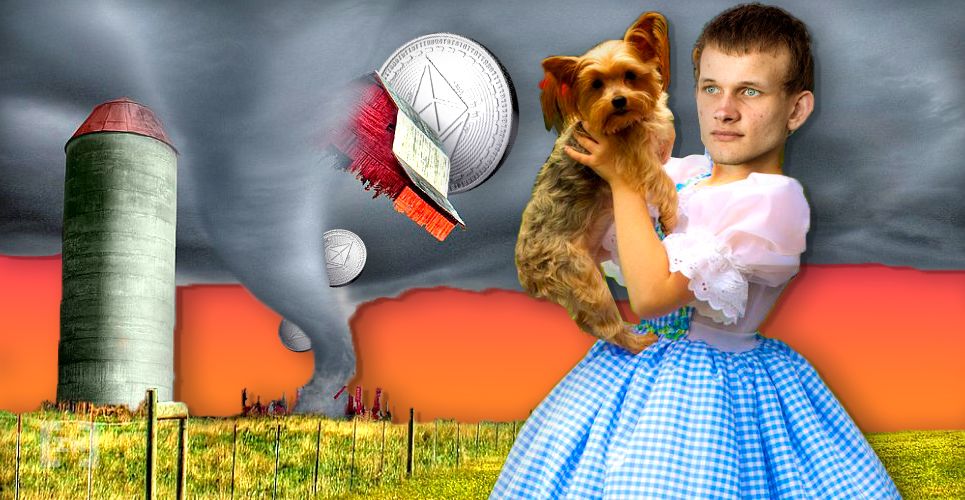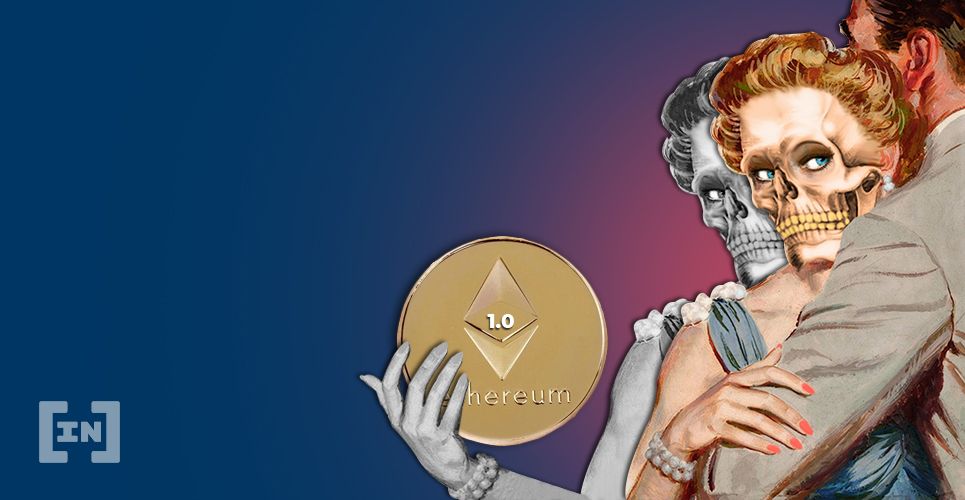Given that ETH 1.0 has turned out to be a scam, advertised repeatedly as scalable by people like you who knew it wasn't, why shouldn't an article lead with the obvious question: Will ETH 2.0 also be a scam?
— Peter Todd (@peterktodd) October 9, 2019
Ethereum’s Scaling Issues
The basis of this attack on Ethereum, by both Cuen and Todd, is predicated around Ethereum’s inability to scale as a mainstream platform. The smart-contract pioneering platform has been shown up a number of times when its network became under pressure and, as such, has led to a new iteration being put into the works to address some of these concerns. Many Ethereum believers see this new version of the blockchain as all part of the process. However, critics have slated this development and asked several questions of how Ethereum 2.0 will transition from the first iteration successfully.
Is Ethereum a Scam?
Todd’s response to Buterin was aimed at how another co-founder, Joseph Lubin, maintained that Ethereum was always scalable — but, as BeInCrypto previously reported, has since come forward and admitted it is not. Todd in a tweet:“The most common type of scam in the crypto space has been claiming that things scale when they don’t, and that things are trustless when they aren’t. ETH 1.0 has done both types of scam. They’re the hardest challenges; fertile ground for lying.”

Dividing Lines
This Twitter tirade has brought forward clear and distinct dividing lines in the ever-tribal cryptocurrency community. Bitcoiners have leaped down the throats of those pushing Ethereum’s message of growth in development — harking back to early claims that the project was always intended to be scalable.However, for the ardent Ethereum supporters, this is all part of the process — and the upgrading of the project towards 2.0, with changes regarding scalability, mining, and accessibility, is perfectly acceptable.No, seriously. 5 years ago they said you could build scalable apps in the ICO legal document titled "TermsAndConditionsOfTheEthereumGenesisSale.pdf".
— grubles (@notgrubles) September 20, 2019
It's since been removed from ethereum,org but there is an archive of the document. pic.twitter.com/eEYcUCrDvp
Losing Ground
There is no doubt that Ethereum is in desperate need of upgrading. It has struggled to scale in any way, shape, or form and has been met with new waves of competition from the likes of TRON (TRX) and EOS — which can provide different consensus algorithms and incentives for developers to use their Virtual Machines for development. Ethereum 2.0 will change its mining algorithm and shift to proof-of-stake, not to mention add a number of other upgrades. Yet, there will still be many calls that this is just window dressing for a project that is attracting the ‘scam’ label more and more frequently. Is the move to Ethereum 2.0 simply part of the process, or should those who brought the platform about be held accountable for the promises they made early on about scaling? Will the upgrade be the answer to the issues or ‘another scam?’ Let us know in the comments below!Disclaimer
In adherence to the Trust Project guidelines, BeInCrypto is committed to unbiased, transparent reporting. This news article aims to provide accurate, timely information. However, readers are advised to verify facts independently and consult with a professional before making any decisions based on this content. Please note that our Terms and Conditions, Privacy Policy, and Disclaimers have been updated.


